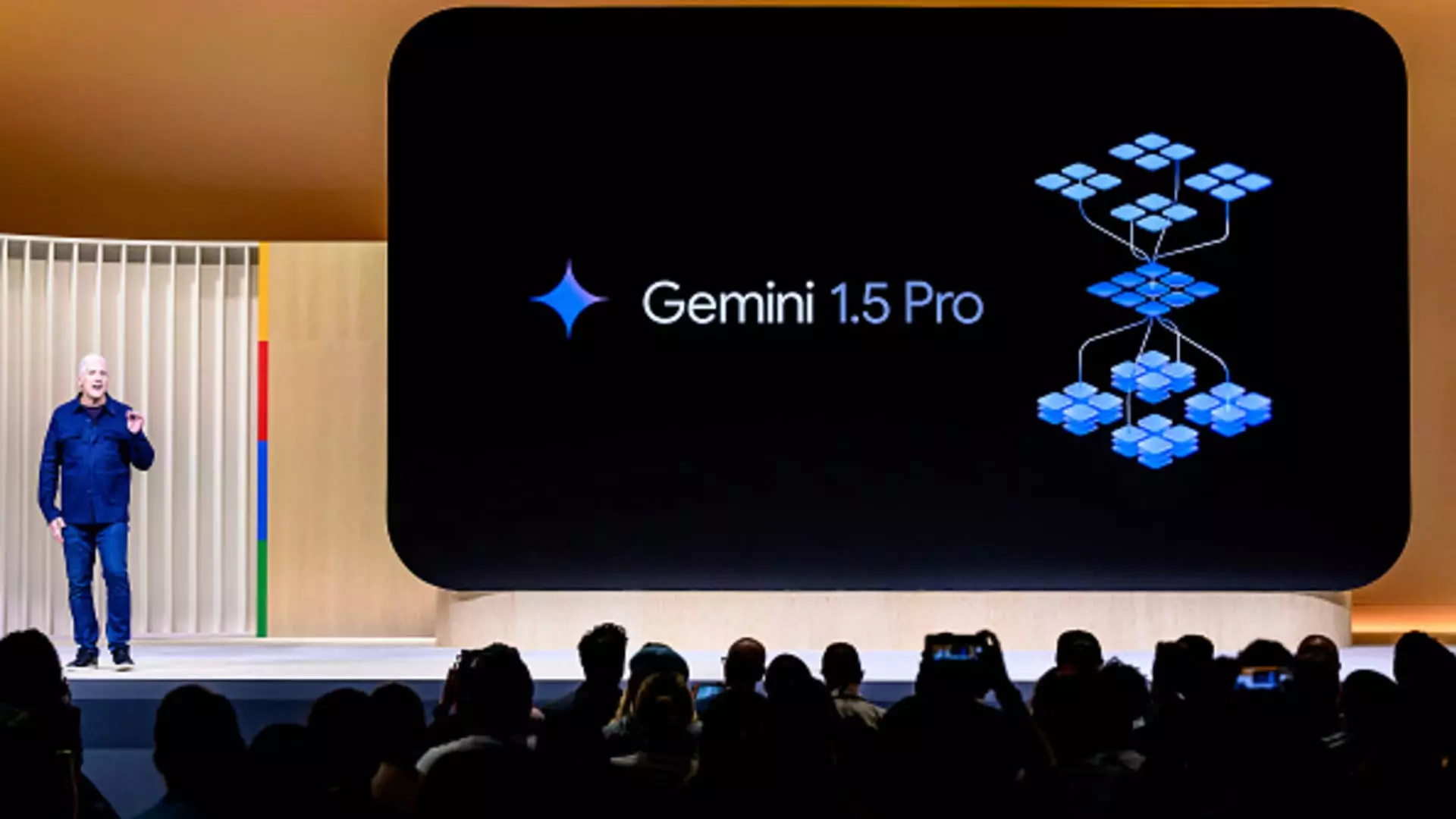During Google’s recent Pixel phone launch, the presentation was marred by technical glitches and buggy demos. This was evident when David Citron, a product director, attempted to showcase the capabilities of the new AI assistant, Gemini. Despite informing the audience that all demos were live, the assistant failed to perform as expected. The embarrassing moment occurred in front of a large crowd at Google’s headquarters and a significant online audience.
Despite the mishap during the demo, it shed light on Google’s superior advantages in artificial intelligence features integrated into smartphone software. While competitors are also gearing up for the AI revolution, Google’s Gemini features are already in existence and available for testing. This places Google ahead of the curve in providing real, tangible AI functionalities to users. Apple, for example, presented prerecorded videos to showcase upcoming Siri enhancements under its Apple Intelligence system, which remains in testing phase.
The shift towards integrating AI into smartphone operating systems is becoming increasingly competitive among market leaders like Google and Apple. With the rise of “Gen AI” capable smartphones, the demand for AI-driven devices is on the rise. IDC predicts a substantial increase in the sales of AI-enabled smartphones by 2024. As generative AI transitions to handheld devices, the market is poised to experience a transformation in AI processing. Devices will rely on simpler AI functions running on existing chips rather than large data centers.
Google’s presentation showcased several cutting-edge capabilities not yet available in other platforms. The introduction of multimodal AI, allowing users to interact with images and text simultaneously, is a notable advancement absent in Apple’s capabilities. Moreover, the demonstration of the Gemini Live assistant’s natural conversational abilities signifies Google’s leadership in developing AI-driven features that mimic human interaction. The emphasis on conducting deep research and aiding users in various tasks highlights Google’s commitment to AI innovation.
The rivalry between Google and Apple in AI integration is evident in their respective approaches. While Google touted its “decades of investment” in AI and its integrated strategy, Apple focused on its expertise in hardware-software integration. Both companies aim to deliver seamless AI experiences to users, each with its unique selling points. With Google’s aggressive push towards AI advancements, Apple faces renewed pressure to keep pace with the evolving smartphone landscape.
Google’s Pixel phone launch presentation, despite the technical hiccups, underscored the company’s lead in AI integration and innovation. The live demonstration of Gemini features showcased Google’s commitment to delivering cutting-edge AI functionalities to a wide user base. As the competition in the smartphone market intensifies, the focus on AI capabilities will continue to drive technological advancements and shape the future of mobile devices.


Leave a Reply